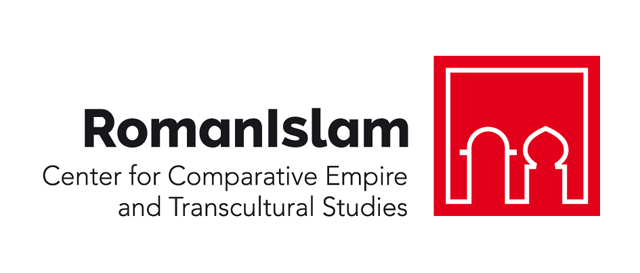Dr. Antonia Bosanquet
Research Project: The Islamication of Ifrīqiya in the 8th and 9th Centuries. Slave Trade and Integration into the Islamic Empire
My research project, tentatively titled “The Islamication of Ifrīqiya in the 8th and 9th Centuries,” examines Ifrīqiya’s transition into the Islamic Medieval Period following the Arab conquest of the region in the late 7th century. I examine how major factors for instability following the conquest, including native opposition to Arab rule and internal political dissent, were overcome by the Aghlabid rulers of the 9th century. I also consider how the cultural-political strategies undertaken by the Aghlabid rulers continued aspects of the region’s antique history, despite its reorientation towards the Islamic east.
I am currently assessing the relevance of conversion to Islam and the adoption of Islamic law as a referential framework for the expansion of trade routes in the period under study. Not only the demand for slaves in the Middle Eastern Islamic Empire, but also assumptions of a shared religion and a predictable pattern of commercial exchange anchored in notions of Islamic law contributed to the expansion of trade networks, which came to connect regions as distant as Mali and Baghdad. The many references to Berber slaves in the narrative and historical literature of the medieval Middle East are evidence that the capture, transport and sale of slaves were facilitated as a result of this expansion. The economic benefits that the slave trade brought to the region strengthened its connection with the Islamic East, and the importance of Islam as a broad unitive framework.
Profile
I am a historian of the Middle East and Islamic Mediterranean. I work with a variety of sources, but mostly early legal texts, to study the Islamication of the region of modern Tunisia, Algeria and western Libya in the 9th century. I am currently examining the relevance of Islam and Islamic law as a referential framework for the trade networks that connected this region with the Islamic Empire and other African cities. I am also interested in the interactions between Muslims and non-Muslims in this region, and in the influence that both the Christian heritage of Roman Africa and the Jewish communities that remained after the Arab conquest exerted on the development of this province of the Abbasid Islamic Empire.
My earlier work focused on relations between Muslims and non-Muslims in Islamic thought and history between the 9th and the 15th centuries. My second book, Minding their Place: Space and Religious Hierarchy in Ibn al-Qayyim’s Aḥkām ahl al-dhimma (Brill, Oct. 2020) analyzed a key text in the legal discourse about non-Muslim subjects, written in Damascus in the 14th century. My fascination with medieval legal discourse developed out of my study of modern Salafi views of inter-religious relations. My first book, The Hand that Rocks the Cradle is the Hand that Rules the World: An Analysis of Muḥammad Quṭb’s Portrayal of Feminism as a Jewish Conspiracy studied the modern Islamist author Muḥammad Quṭb’s (d. 2014) view of Judaism and gender relations.
CV
Selected Publications
Bosanquet, Antonia (forthcoming a), “Classical and Contemporary Rulings on Marital Relations Following the Wife´s Conversion to Islam”, in: Omar Anchassi, ed., Edited Volume of the Conference Proceedings of USPIPP Islamic Law and Sexuality Workshop, 11 to 13 January 2020, University of Exeter.
Bosanquet, Antonia (forthcoming b), “Shifting Trade Patterns in the Abbasid Province of Ifrīqiya”, in: Stefan Heidemann / Antonia Bosanquet, eds., The Measure of Integration – Economic Structures and Resources of the Early Islamic Empire, Berlin: de Gruyter.
Bosanquet, Antonia (in press a), Minding their Place. Space and Religious Hierarchy in Ibn al-Qayyim´s Aḥkām ahl al-dhimma (The History of Christian-Muslim Relations 25), Brill.
Bosanquet, Antonia (in press b), “Keeping their Place. The Prohibition of Non-Muslim Scribes in Ibn al-Qayyim´s Aḥkām ahl al-dhimma”, in: Clara Almagro-Vidal / Jessica Tearney-Pearce / Luke Yarbrough, eds., Minorities in Contact in the Medieval Mediterranean (Cultural Encounters in Late Antiquity and the Middle Ages Series), Turnhout: Brepols.
Bosanquet, Antonia (in press c), “Aḥkām ahl al-dhimma by Ibn Qayyim al-Jawziyya”, in: David Thomas, ed., Christian-Muslim Relations. A Reader (600-1500), Leiden: Brill.
Bosanquet, Antonia (in press d), “A Response to Questions Regarding the Conversion of One Spouse to Islam”, in: Nimrod Hurvitz / Christian Sahner / Uriel Simonsohn / Luke Yarbrough, eds., Turning to Mecca: A Sourcebook on Conversion to Islam in the Classical Period, Berkeley: California University Press.
Bosanquet, Antonia (2019), “The kitābī Wife´s Conversion to Islam: An Unusual Interpretation by Ibn Qayyim al-Jawziyya”, Islamic Law and Society, 1-29.
Bosanquet, Antonia (2019), “Review of G. Anderson et al., The Aghlabids and their Neighbors: Art and Material Culture in Ninth Century North Africa”, Der Islam 96: 1, 207-210.
Bosanquet, Antonia (2015), “Review of M. Hassan Khalil, Islam and the Fate of Others. The Salvation Question and Between Heaven and Hell and Islam, Salvation and the Fate of Others”, Journal of Near Eastern Studies 74: 2, 392-394.
Bosanquet, Antonia (2013), “Review of J. Lassner, Jews, Christians and the Abode of Islam: Modern Scholarship, Medieval Realities”, International Bulletin of Missionary Research 37: 4, 237.
Bosanquet, Antonia (2012), “The Hand that Rocks the Cradle is the Hand that Rules the World.” An Analysis of Muḥammad Quṭb´s Portrayal of Feminism as a Jewish Conspiracy (Bonner Islamwissenschaftliche Hefte 24), Bonn: E-B Verlag.



